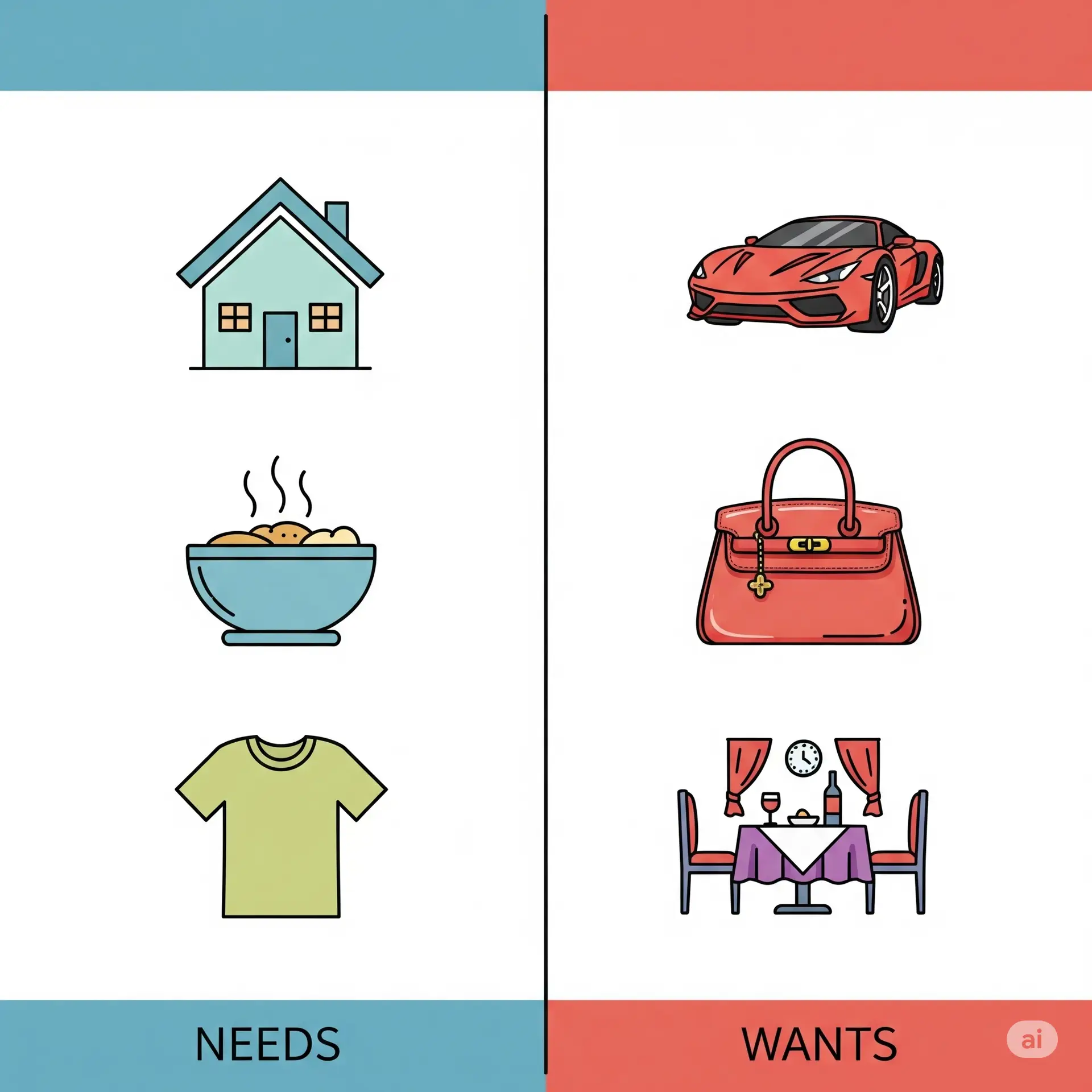In the pursuit of financial security, one of the most powerful skills you can develop is the ability to distinguish between a need and a want. It sounds simple, but in a consumer-driven world, the lines can easily blur. Learning to make this distinction is the cornerstone of smart spending habits and the foundation for building long-term wealth.
What are Needs?
Needs are the essentials for your survival and basic well-being. These are the non-negotiable expenses that you cannot live without. Think of them as the pillars of a stable life.
- Shelter: A safe place to live.
- Food: Nutritious meals to sustain you.
- Utilities: Electricity, water, and heat.
- Basic Transportation: A way to get to work or handle essential errands.
- Healthcare: Medical services and insurance.
Prioritizing your spending on these items first ensures your fundamental security is always met.
What are Wants?
Wants are the items you desire but are not essential for survival. They improve your quality of life, provide entertainment, or offer convenience, but you can live perfectly well without them.
- Luxury clothing or designer items.
- The latest gadgets and electronics.
- Frequent dining out or high-end restaurants.
- Expensive vacations or weekend getaways.
- Multiple streaming service subscriptions.
While there’s no harm in enjoying some of these things, consistently prioritizing wants over needs is a direct path to financial stress and debt.
Why Differentiating Needs vs. Wants is Crucial for Your Financial Future
Understanding this difference is the key to effective money management. It’s not just about saving money; it’s about making your money work for you and your future.
- Effective Budgeting: When you know what’s essential, you can allocate funds to your needs first. This prevents overspending on desires and ensures you’re always covered.
- Increased Savings & Investments: By consciously reducing spending on wants, you free up cash that can be put towards savings, investments, or paying down debt. This is how real wealth is created.
- Reduced Financial Stress: Making intentional spending choices gives you a sense of control over your finances. It helps you avoid the guilt of impulse buys and the anxiety of living paycheck to paycheck.
Practical Tips for Smart Spending
Ready to put this knowledge into practice? Here are a few simple tips to help you differentiate and build smart spending habits:
- Track Your Spending: Use an app or a simple spreadsheet to see where every dollar is going. This often reveals surprising patterns of spending on wants.
- Implement a “Cooling-Off” Period: Before making a non-essential purchase, wait 24-48 hours. Often, the desire fades, saving you money on impulsive buys.
- Ask the “Why”: For every potential purchase, ask yourself, “Is this a need or a want? Why do I want this?” This simple question forces you to be mindful and intentional.
- Align Spending with Your Goals: If your goal is to buy a house, you’ll be more motivated to say no to daily lattes or new clothes. Your spending habits should reflect your long-term aspirations.
By making a conscious effort to differentiate your needs from your wants, you can transform your financial life. It’s a small change in mindset that leads to big results—a more secure, stable, and wealthy future.
#NeedsVsWants,#SmartSpending,#Budgeting, #FinancialSecurity,#SavingMoney, #FinancialPlanning,#SpendingHabits,#FinancialLiteracy,#WealthBuilding,#Money Management, #PrioritizeSpending,#PersonalFinance

